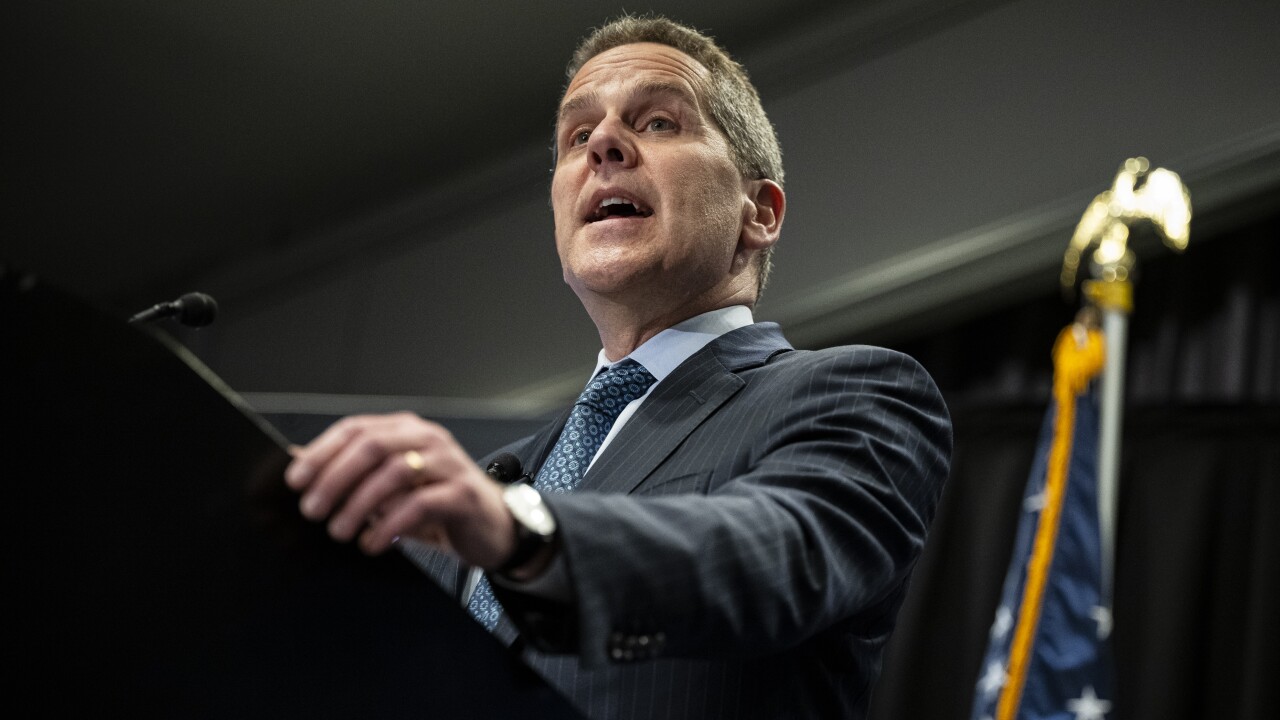-
Target Corp., which has tried for years to sell its credit card receivables, said Wednesday that it has temporarily "suspended" its efforts — and is spending more than $2.8 billion to divorce itself from JPMorgan Chase.
January 18

GE Capital's deal to purchase the card assets of Toys "R" Us from JPMorgan Chase & Co.? Get used to it.
"Those activities are going to be way up from the last five years," says Bob Hammer, founder and chief executive of card industry advisory R.K. Hammer in Thousand Oaks, Calif. "Given the Street chatter, it's going to be a more active M&A year for credit cards, both private label and co-branded."
GE Capital's retail bank said Tuesday that it had signed a deal to provide the consumer credit card program, including private-label and co-branded cards, in the U.S. and Puerto Rico for retailer Toys "R" Us. GE Capital, the finance arm of General Electric Co., also said that it would acquire roughly $900 million in existing card program assets from JPMorgan Chase.
GE Capital and JPMorgan Chase declined to reveal the premium that GE Capital paid for the assets. The deal is expected to close in the second quarter, and GE Capital will relaunch the card program in June.
R.K. Hammer expects that 40 portfolios containing $45 billion of assets will be sold in 2012, at an average premium of about 16.4% above face value. Those figures include Capital One Financial Corp.'s deal for HSBC Bank USA's $30 billion credit card business.
If that prediction proves true, M&A card activity would return to pre-recession levels and top by a long shot the 10 deals seen in 2011 involving $5.4 billion of assets; the average premium last year was 14.4%. An improving economy and the shifting strategies of companies will fuel deals, Hammer says.
GE Capital is a prime example of a business that has changed gears. In 2007, it decided to sell its retail consumer finance business. However, it could not find a buyer and has since recommitted to the business. In October 2010,
"Credit cards are back in the core of GE Capital, and it is a business that GE Capital will grow and invest in," Margaret Keane, chief executive of GE Capital's retail finance business, said in an interview.
GE Capital will continue to be active this year, analysts predict. It has reprised its role as "a major player," Hammer says. "Eighteen months ago we thought they would be back to buying."
GE Capital has "expertise with deals in the retail space and that's where we will stick to," Keane says. It seeks "more relationships and opportunities to start up new programs."
Besides GE Capital, other potential buyers include Capital One and Alliance Data Systems Corp., says Steven Kietz, an executive vice president at edo Interactive Inc. He identified these companies as ones "investing and looking to grow."
Capital One's chief executive,
Paul Hartwick, a spokesman with JPMorgan Chase, said that an executive was not available to comment beyond the press release.
Over the last few years, JPMorgan Chase, which provided both co-branded and private-label credit cards for Toys "R" Us, has refocused its credit cards business on attracting wealthy customers, including frequent fliers who use airline-rewards cards. At the same time it has dropped some of its retailer card partnerships, including those with Sony Corp., Kohl's Corp. and Pier 1 Imports Inc.
For example, the bank paid
Selling the Toys "R" Us assets to GE Capital is an example of JPMorgan's disciplined behavior and approach to its credit card business, says Philip J. Philliou, a partner at Philliou Partners LLC. The bank is an extremely smart operator that acts decisively.
"It would appear that JPMorgan Chase is evaluating their retail card deals," Philliou says. "Anything that is a retailer I would put a question mark next to."





